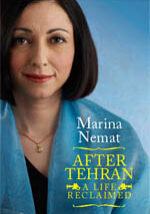In 701 B.C. the Assyrian empire was in its ascendancy. It had already vanquished the kingdom of Israel to the north including the capital at Samaria. It then prepared an assault on Judah and its capital at Jerusalem.
But in one of those significant events that changes the course of world history, Assyria was repelled. Jerusalem was saved until 586 B.C. when the Babylonians sacked the city, forcing its leadership class into exile.
Henry Aubin, in a major feat of scholarship, determines that Jerusalem was aided by a Kushite army from Africa which had marched northeast from the Nile valley. While the Bible attributes the Assyrian retreat to an angel and secular commentators cite pestilence, Aubin, in a meticulously documented work, demonstrates that an alliance with the African nation of Kush bolstered Jerusalem’s defences.
Kush, also known as Nubia, was located in what is now southern Egypt and northern Sudan. A monarchy that existed for more than 1000 years, from 900 B.C. to A.D. 350, Kushites held sway over Egypt from 712 B.C. to about 660 B.C. Of Egypt’s 31 dynasties, this, the 25th Dynasty, is the only one that all scholars agree, was black.
The commander of the Kushite expeditionary force was Taharqa (or as the Bible calls him Tirhakah). This Kushite prince, who had his own interests in halting Assyrian expansion, likely caught the aggressors by surprise as they prepared their siege of Jerusalem.
Aubin offers a thrilling military history and a stirring political analysis of the ancient world. He also sees the event as influential over the centuries.
The Kushite rescue of the Hebrew kingdom of Judah enabled the fragile, war-ravaged state to endure, to nurse itself back to economic and demographic health, and allowed the Hebrew religion, Yahwism, to evolve within the next several centuries into Judaism. Thus emerged the monotheistic trunk supporting Christianity and Islam.

“Prisoner of Tehran, Nemat’s brilliant 2007 memoir, was at once an exquisite work of art about the burden or memory, and an astonishing story… After Tehran is Nemat’s after-story: if the first book recounts her ordeal, the second counts the cost of telling about it…an account as graceful, honest, and revelatory as her original.”
Brian Bethune
Maclean’s Magazine
“[a] portrait of an artist and the evolution of an activist.”
Donna Bailey Nurse
Globe & Mail
“…a fascinating study of one woman’s struggle to win back her life from the ravages of a traumatic past.”
Quill & Quire
Penguin Canada 2010
Cairo Italy Nov 2010
Droemer Germany 2011
Kinneret Israel 2011
After Tehran
A Life Reclaimed
When Marina Nemat walks out of the notorious Evin prison at age 18, after being incarcerated for 2 years, 2 months, and 12 days for political crimes, and crosses the busy Jordan Highway in Tehran to join her family, she hopes to resume her life.
But release from prison promises a freedom that is elusive. Her loving but flawed parents are wary of probing the details of torture and rape. Her high school sweetheart Andre, the boy who played the church organ, has waited for her. Yet, she can’t tell him about her forced marriage to her captor, Ali, a Revolutionary Guard, or about Ali’s death, and the miscarriage she had suffered.
Even her marriage to Andre imperils them. Her reversion to her Catholic faith after her forced conversion to Islam is regarded as apostasy, a crime punishable by death.
She and Andre manage to leave Iran to come to Canada in 1991and to raise two sons. Despite her attempts to compartmentalize her present from her past, survivor guilt, the burden of secrets, and flashbacks of the agonies she suffered , intrude on her life as a housewife and mother with a job as a waitress at a suburban fast food restaurant.
Marina finds freedom when she summons the courage to break her silence in her bestselling memoir Prisoner of Tehran. It is a powerful story of a girl held hostage by a cruel regime. After Tehran: A Life Reclaimed is a moving and triumphant story of a mature woman and her struggle to breathe free.
Both books are a validation of process of bearing witness, an act which requires both the author and the reader. Therein lies the beauty and the healing.
Click here for Marina’s website:
http://www.marinanemat.com/index.html
Book trailer for After Tehran:
https://youtube.com/watch?v=cDCAIy3D4wo%3Frel%3D0
Prisoner of Tehran was chosen as the common book for the University of Minnesota’s interdisciplinary First Year Experience program because it initiates discussion about this single question: how can one person make a difference. Read more:
TVO film interview Feb 2010:
http://tinyurl.com/ykqpgzf
Chosen as one of five noteworthy books in the National Catholic Reporter:
http://tinyurl.com/ybvdrzx
Click here for Marina on Iran in the Huffington Post:
http://www.huffingtonpost.com/marina-nemat/prisoners-in-tehran_b_527146.html
Marina is featured in Ha’aretz, Israel’s largest English language newspaper, for the Jerusalem Book Fair:
http://tinyurl.com/4sakgwa